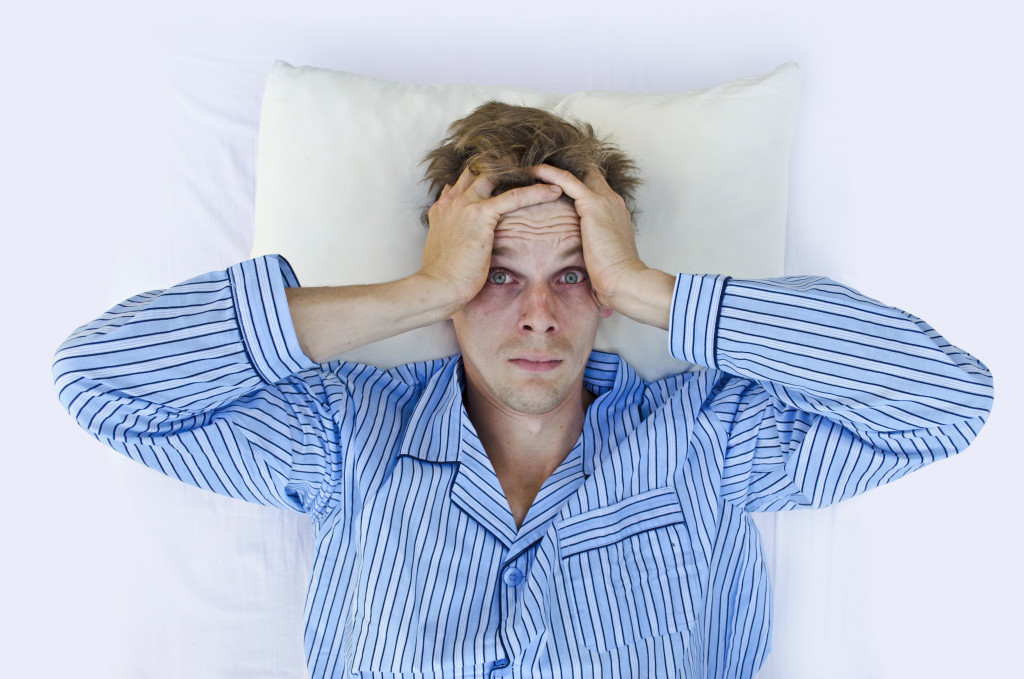Sleep deprivation can lead to a myriad of issues, including impaired immune function, reduced productivity, and obesity. It can also contribute towards depression symptoms and mental illness in people who are predisposed genetically or environmentally. For these reasons, it is important that we take steps towards improving our sleep habits for better health outcomes both now and in the future!
Let’s take a look at a few ways that you can adjust your lifestyle to improve sleep quality.
Establish a bedtime routine and stick to it
Having a bedtime routine is key to getting a good night’s sleep. By following the same routine each night, you’ll train your body to relax and prepare for sleep. Some tips for creating a bedtime routine include winding down for 30 minutes before bed, avoiding caffeine and alcohol close to bedtime, and sticking to a regular sleep schedule.
Creating an environment that is conducive to sleep is also important. Make sure your bedroom is dark, quiet, and cool, and avoid using electronic screens in the hours leading up to bedtime. If all of these adjustments don’t help you get the quality sleep you need, you can try using relaxation techniques or herbal remedies to fall asleep faster and stay asleep throughout the night.
Avoid watching television or using electronic devices in bed

The content above highlights the importance of getting a good night’s sleep and offers some tips on how to achieve this. One suggestion is to avoid watching television or using electronic devices in bed, as these can be disruptive and prevent you from falling asleep. It’s important to create an environment that is conducive to sleep, and using electronic devices in bed can often interfere with this. If you find it difficult to fall asleep or stay asleep, you may want to try avoiding electronic screens in the hours leading up to bedtime.
Reserve the bed for sleep
When it comes to getting a good night’s sleep, it’s important to create an environment that is conducive to this. This means reserving the bed for sleep and nothing else. By using the bedroom for sleep only, you’ll train your body to relax and prepare for bed. Make sure your bedroom is dark, quiet, and cool, and avoid using electronic screens in the hours leading up to bedtime. If all of these adjustments don’t help you get the quality sleep you need, you can try using relaxation techniques or herbal remedies to fall asleep faster and stay asleep throughout the night.
Exercise during the day
Regular exercise is essential for good health, and it can also help improve sleep quality. Exercise releases endorphins, which have a calming effect and can help you relax and fall asleep faster. It’s important to exercise during the day, as this will help you get the most out of your sleep at night. Some tips for exercising during the day include scheduling at least 30 minutes of exercise, avoiding strenuous exercises close to bedtime, and sticking to a regular routine. By exercising during the day, you’ll help your body prepare for a good night’s sleep!
Avoid caffeine and alcohol before bedtime
Both caffeine and alcohol can interfere with sleep, so it’s important to avoid them before bedtime. Caffeine can keep you awake by stimulating the central nervous system, and alcohol can disrupt sleep cycles and cause morning hangovers. It’s best to avoid caffeine and alcohol in the hours leading up to bedtime so that you can get the most restful sleep possible.
Practice some relaxation techniques before bedtime
One way to help you sleep better at night is to practice relaxation techniques before bedtime. There are many different techniques that you can try, but some of the most popular ones include deep breathing exercises, visualization exercises, and progressive muscle relaxation.
Deep breathing exercises involve inhaling and exhaling deeply, and they can be a great way to calm your mind and body before bed. Visualization exercises involve picturing yourself in a calm and relaxing setting, such as a beach or a forest. This can help you unwind and prepare for sleep. Online tai chi lessons may make good relaxation techniques to use before bedtime because they can help you de-stress, focus your mind, and prepare your body for sleep.
Conclusion
There are many things you can do to improve your sleep quality, such as establishing a bedtime routine, avoiding caffeine and alcohol before bedtime, and practicing relaxation techniques. By making a few small changes to your lifestyle, you can get the restful sleep you need each night!

